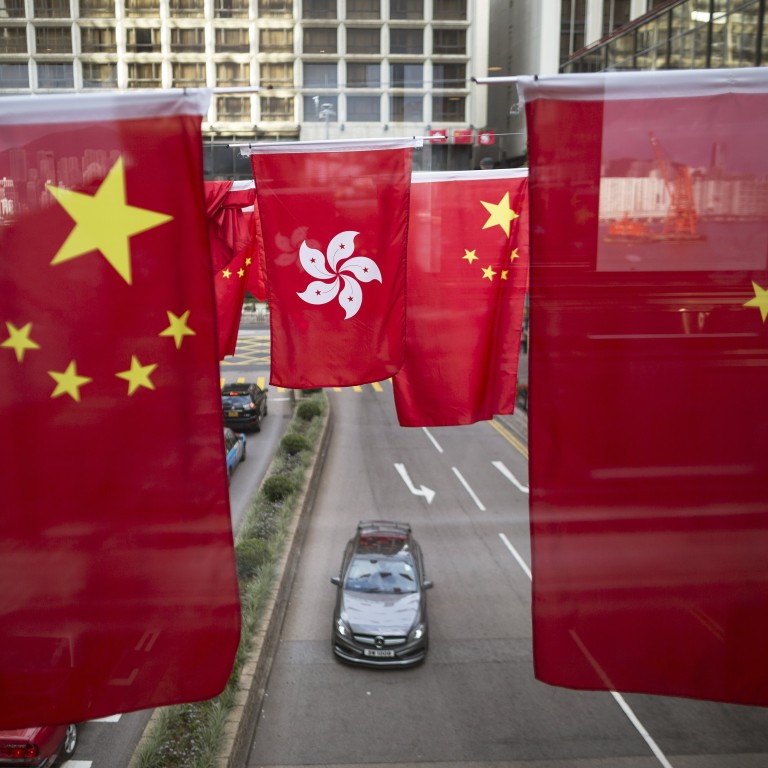Hong Kong’s
port activities are dropping as the mainland’s improve. But Hong Kong is still a major transshipment port. Most of these shipments are from China to the US and they are likely to, at best, stagnate. Plenty of goods going from the US to China, legally or illegally, come through the port. The two countries are too intertwined for trade volume to plummet in the near term. But a slowdown in Sino-US trade will accelerate the decline already under way at Hong Kong’s port.
Technology could be more economically damaging. Expect a far tougher attitude towards exports of many forms of technology. It’s impossible to predict what form restrictions might take. But, if they do come, they are likely to be crude and blunt.
Trump’s decision to effectively pronounce a death sentence on Chinese telecoms maker
ZTE and then give it a reprieve is an example of the way these events can play out. Charges against
Huawei chief financial officer Meng Wanzhou are another battlefront in the Sino-US techno war. Remember that
Meng’s alleged crime was to cover up Huawei’s links with
Iran using a Hong Kong company to deceive bankers.
The US has weaponised the financial system. Huawei notwithstanding, Asian banks and companies have been little touched by US authorities’ more aggressive use of the international financial system to advance Washington’s foreign policy objectives. European banks have paid billions of US dollars in fines for infractions ranging from violating Iranian sanctions to money laundering.
The US effectively views any money that moves through the international payments system as subject to US jurisdiction. That led to the
December 2018 bribery conviction in a US federal court in New York of former Hong Kong home affairs minister
Patrick Ho Chi-ping. In Macau, Banco Delta Asia was blacklisted for its
North Korea-related activities.
The lack of an alternative to the US dollar for now gives Washington extraordinary power over the global financial system and provides a blunt tool to enforce its policies on areas from Iran and North Korea to
terrorism and money laundering. There’s no alternative currency as of yet. The renminbi’s move to full convertibility has stalled for two decades. Convertibility is only the first step on a journey that is likely to take until mid-century before China’s role in the global financial system rivals the US’.
Hong Kong has had experience being caught in the middle. After the Korean war started in 1950, Hong Kong found itself on the edge of a fault line, one that separated a colonial, capitalist enclave from an anti-colonial, revolutionary communist continental power. In 1951, a visiting journalist pronounced the colony a “dying city”. Then-governor Alexander Grantham termed Hong Kong “an innocent sufferer” in the Korean conflict. Chase Bank, the Rockefeller bank, closed its operations in the colony.
Far from being a dying city, the 1950s marked the beginning of Hong Kong’s golden age. The factories that fled Shanghai after 1949 set up in Hong Kong, making the colony a major exporter for the first time and giving it a head start against rivals
Singapore,
South Korea and
Taiwan in world export markets. Good government policies complemented entrepreneurial drive as the colony accommodated more than 1 million refugees in the decade after the war.
Those 10 or 15 years after the war also saw the rise of civil society in Hong Kong and a government that responded to community aspirations with new initiatives in
housing, health and
education. Moves towards more democracy were scuttled but nimble and thoughtful colonial administrators successfully kept up with popular demands for change. Deadly riots,
first in 1956 and
then in 1967, were a spur to more reform by government.
History, of course, never repeats itself, but it does rhyme. The Sino-American stand-off in the Korean war hurt Hong Kong badly. Effective leadership gave Hongkongers, half of them newcomers to the colony, hope and made possible a new sort of colony. Will today’s leaders have the same ability?
Hong Kong is defined by its geography to be forever between China and the world, unless it is absorbed altogether by the mainland. If Hong Kong is to continue to prosper as a unique global hub, leaders need to articulate a vision that allows the territory to be both part of the People’s Republic of China and yet to some degree standing outside it.
Hong Kong’s best hope of successfully riding out a new cold war is to strengthen its institutions, for they are what make it unique. In the 1950s and 1960s, the response was more housing,
health care and education. Today, it means accountable and transparent systems of finance and governance. Given good leadership, there’s every reason to believe that Hong Kong can continue to act as a pacesetter for the region.
Mark L. Clifford is executive director of the Asia Business Council


